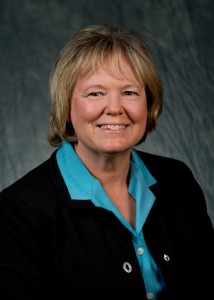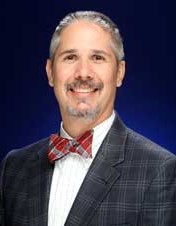Integration of General Education and the Major
 Presenter:
Presenter:
Sandra Bailey: Professor, Oregon Institute of Technology
Sandra Bailey is professor of business management and the former director of academic excellence at Oregon Tech. During her seven-year tenure as director she guided the institution from an accountability focus to an improvement orientation; coordinating assessment with curricular design and faculty professional development. At Oregon Tech she also led a task force in a comprehensive general education review using assessment results and the Degree Qualifications Profile to guide the redesign of general education. Oregon Tech’s new Essential Studies program is an integrated general education program with clear alignment to institutional student learning outcomes. Bailey served on the steering committee of the Multi-State Collaborative to Advance Quality Student Learning (MSC), serves as a reviewer for the Excellence in Assessment designation, and was the Oregon state lead for Association of American Colleges and Universities’ (AAC&U) Faculty Collaboratives project. She has organized statewide faculty conferences in Oregon and facilitated assignment design workshops with faculty across the country. Bailey has been a National Institute for Learning Outcomes Assessment (NILOA) coach since 2014 and has been an invited presenter at ABET and AAC&U national conferences.
 Presenter:
Presenter:
David Marshall: Professor, University of California- San Bernardino & Senior Scholar, NILOA
David Marshall is a Senior Scholar with the National Institute of Learning Outcomes Assessment (NILOA) and serves as a Professor of English and Director of the University Honors Program at California State University San Bernardino. He facilitated the Lumina Foundation-funded Tuning projects nationally from 2010 to 2016, working with states, regions and national disciplinary associations to identify essential learning within disciplines and develop strategies for campus-based engagement with the resulting learning outcomes. His research, taken from a practitioner lens, explores issues of alignment and curriculum mapping as a complex collaborative process in higher education, both within institutions and across institutions nationally. He is the author of Tuning American Higher Education: The Process and co-author of Roadmap to Enhanced Student Learning and co-editor of a special volume of New Directions in Institutional Research on Degree Qualifications Profile (DQP) and Tuning. A graduate of College of the Holy Cross, he earned his Master’s degree in Medieval Studies from the University of York, England and his Ph.D. in English from Indiana University.
Description:
Our institutions tend not to be organized or function towards intentional alignment of student learning experiences. Students learn everywhere, but the institutional organization tends to require students to take the jumble of experiences and organize them for themselves. How do we help students make sense of it all?
This workshop will use the Learning Systems Paradigm, a framework to help participants reflect on the organization of their institution, how work might be accomplished within that organization, and whom they might involve in that work. The framework encourages:
Working collaboratively across typical divisions
Intentionally aligning learning experiences
Addressing needs of the institution’s particular students
Building transparency for all participants and stakeholders
The workshop facilitators will share their experience at two different institutions with participants on meaningful mapping of curriculum, integration of general education, and re-envisioning of assessment. Participants will leave with action plans for how to further work on their campus. They will learn about various resources and publications available to assist in their efforts to better align and integrate general education and the major; explore various approaches to curriculum mapping; and learn from national efforts to enhance the effectiveness of general education.
Workshop participants will develop individual action plans based on an institutional alignment issue defined in the workshop. Implementation of the plan will be within the realm of the participant's current role at their institution.
Learning Outcomes:
At the end of this workshop, participants will be able to…
- Participants will test their action plans with a colleague soliciting feedback.
- Participants will implement the plan utilizing resources within the realm of control of their current role at the institution.
- Participants will assess the effectiveness of the change implemented based on their action plan and make adjustments as necessary using the Design Thinking process modeled in the workshop.